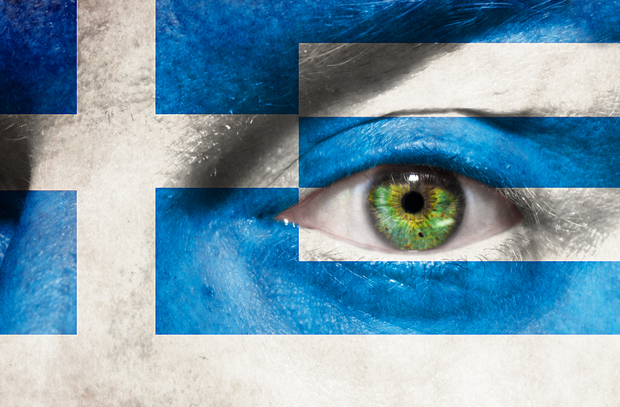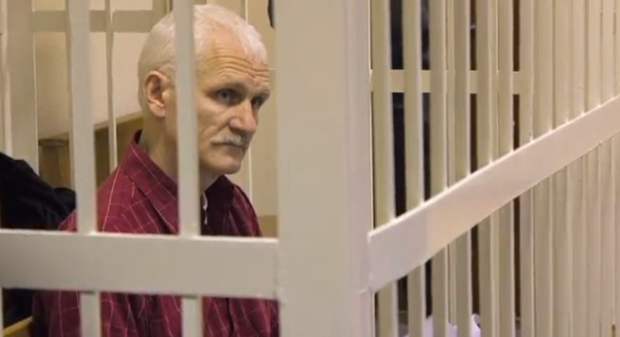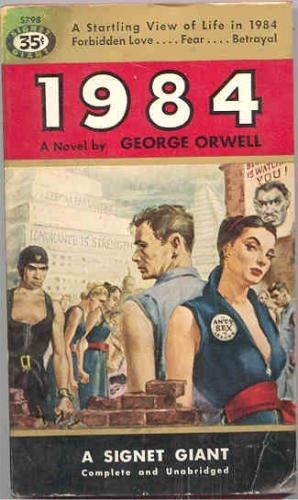22 Jan 2014 | Middle East and North Africa, News and features, Sudan
The campaign video features stories from Sudanese citizens negatively affected by the US sanctions
A group of Sudanese independent civil society members this week launched a campaign under the banner “The Sudanese Initiative to Lift US Technology Sanctions from Sudan”.
The campaign aims to educate the Sudanese public and American policy-makers about the negative impact of US sanctions on the free access to information communication technologies (ICTs) and the internet in Sudan. The launch marks a year-long advocacy effort that has included talks with US-based civil society groups and the US State Department.
The demands of the campaign is that the US government revisits its sanctions regime on Sudan, on the grounds that current sanctions negatively impact Sudanese citizens’ access to ICTs in a number of sectors, including educational institutions, pro-democracy civil society and humanitarian efforts that utilise geographic information system (GIS) technology.
Although the US announced a partial lifting of sanctions relating to educational exchange in early 2013, this targets research and the free flow of information, not personal use of communication technologies.
The objective of the campaign is to give a voice to, and learn from, the stories of a range of Sudanese citizens negatively affected by these US sanctions. In the campaign video, educators, students, crisis mappers, civil society members and technology professionals recount how US sanctions are limiting their free access to knowledge and information online.
Mohammed Hashim Kambal, the campaign’s coordinator, says: “Through talking to Sudanese citizens belonging to a wide variety of sectors it is clear that US sanctions not only hampers access to independent information but also access to knowledge and to aspects of the internet related to crowdsourcing and crisis mapping.”
He stresses, however: “ We want to be clear that this is not an appeal to lift all sanctions from the Sudanese regime that continues to commit human rights atrocities. This is an appeal to empower Sudanese citizens through improved access to ICTs so that they can be more proactive on issues linked to democratic transformation, humanitarian assistance and technology education — an appeal to make the sanctions smarter”.
For example, the Sudanese pro-democracy civil society is facing great limitations from the government and the Humanitarian Aid Commission (that oversees the work of NGOs), linked to accepting foreign funding. It is impossible to directly crowdfund from Sudanese diaspora groups because of US sanctions that don’t permit the transfer of funds to or from Sudan. They therefore have to organise crowdfunding in cooperation with active members the diaspora, who in turn collect funds and send them by hand to Sudan — a process that takes time and effort.
Additionally, crisis mapping, which was very useful during the last floods in August 2013, is limited in Sudan. Crisis mappers are not able to access or purchase tools and/or applications made by American companies, such as Google (including People Finder and Google Crisis Map) or products by Esri, an American company that specialises in GIS technology.
No Sudanese inside the country can purchase original software online. Regular citizens, as well as universities, rely heavily on pirated software that cannot be updated online automatically and is often ridden with malware.
Computer science students have reported that they are unable to obtain their certificates after taking and passing online courses affiliated with US institutions such, MITx. The reason given is that certificates are not issued for countries under comprehensive US sanctions, such as Sudan, Iran, Syria, and Cuba. Additionally, online educational websites, such as Khan Academy, Google Scholar and Audacity remain blocked to users in Sudan.
Conversations with American civil society working on net freedom, about the impact of the US sanctions has yielded positive reactions but no changes in US policy yet. In early December 2013 The New America Foundation’s Open Technology Institute issued a research paper on the topic, and recommended that the US “updates” its sanctions policy to, ”reflect the need for access to personal communications technology”.
The paper concluded that, “U.S. sanctions remain outdated” in acknowledging the role of ICTs in “enabling access to information, free expression, and political dialogue”. They also added the such sanctions “in some cases effectively aid repressive regimes that seek to control access to information within their borders with negative consequences on the civilian population.”
The Open Technology Institute’s research described the sanctions on Sudan to be “the least mature” as compared to other countries, especially Iran, which bares a lot of resemblance to Sudan in terms of political context. After Iran’s “ Green Revolution” in 2009, the US government revised its sanctions on Iran twice, once in 2010 and again in 2013, dropping restrictions on ICTs and issuing detailed instructions to US technology companies clarifying what is permitted for export to Iran and what isn’t.
There’s no reason why Sudan’s technology sanctions should be lagging behind countries like Iran and Syria. It’s time the US revisits its sanctions regime on Sudan, and shows more consideration for the importance of free access to ICTs, information and knowledge on the internet.
This article was posted on 22 January 2014 at indexoncensorship.org
22 Jan 2014 | Greece, News and features, Religion and Culture

(Photo illustration: Shutterstock)
A Greek man felt the wrath of his country’s outdated blasphemy laws after satirising a Greek Orthodox monk on a Facebook page he created. The administrator of the social networking page, Filippos Loizos, 28, was handed a 10 month prison sentence after he used a play on words to compare the late Father Paisios to a traditional pasta-based dish. His arrest in 2012 saw online communities erupt as thousands of Greeks took to social networks to protest his detention.
According to the Atheist Union of Greece, the popularity of Loizos’ Facebook page following his satirical remark angered right wing and religious groups in the country. Golden Dawn, the now banned Greek neo-fascist party, took advantage of the uproar by raising a question in parliament about Loizos and his violations of two Greek laws covering blasphemy and insulting religion. Ultimately Loizos was arrested.
Loizos’ case is not the first of its kind. The Union has now called upon the Commissioner for Human Rights for the Council of Europe, Nils Muižnieks, to repeal Articles 198 and 199 of the Greek Penal Code.
Article 198 punishes any public and malicious blasphemy against God with a maximum of two years imprisonment, three months’ for the public “manifest of a lack of respect for the divinity”. Article 199 covers a broader religious spectrum and offers two years’ jail time for “one who publically and maliciously and by any means blasphemes the Greek Orthodox Church or any other religion tolerable in Greece”.
In a letter sent to Commissioner Muižnieks the Union remarked: “The insult of religion, on the other hand does not harm any citizen, as does the case of insulting people. Only the followers of religions deserve respect and may be offended—not the religion itself—and criticism and/or satire of a religious belief is not identical to insulting persons having this belief.”
They claimed that any disturbance caused by Loizos’ page has been done so by the uncontrolled reactions of angry, religious fanatics who are merely using the Penal Code articles as an excuse to be disruptive. According to the European Court of Human Rights, case Handyside vs the United Kingdom, 1976 (and in many instances since) freedom of expression is a fundamental right in a free society and includes the right to criticize ideas, even when the criticism bothers holders of those ideas.
Loizos has appealed the ruling.
This article was posted on 22 January 2014 at indexoncensorship.org
21 Jan 2014 | Belarus, Europe and Central Asia, News and features

Ales Bialiatski has been imprisoned in Belarus since 2011 (Image: AmnistieWeb/YouTube)
Belarusian president Alexander Lukashenko has said in a press conference in Minsk today that human rights defender Ales Bialiatski could be released from prison soon. This came in response to Ales Lipay, editor of BelaPAN news agency, asking about the possibility of amnesty for Bialaitsky, who has been imprisoned since 2011. He is accused of evading taxes on 90,000 US dollars.
“That damage was repaid to the state long ago with citizens’ donations; there were cases in Belarus when business people who faced economic charges were released after repaying much bigger sums. In neighbouring Russia, President Putin released Mikhail Khodorkovsky who was charged with causing the state damage of 500 million US dollars,” Lipay suggested in his question.
“This is a serious argument,” Lukashenko replied. “This has nothing to do with politics or Biliatski’s views. I swear I have never known him personally […], but taxes are a sacred thing.”
According to Lukashenko, if the information about the damage allegedly caused by Bialiatski being repaid is true, amnesty can be considered. He also suggested other political prisoners, like former presidential candidate Mikalay Statkevich, can be released if they apply with a relevant plea for a presidential pardon.
“Lukashenko’s statement shows he thinks about the issue of political prisoners; he definitely aims at solving this problem without any damage to his image as a strong leader,” Tatsiana Raviaka, Bialiatsky’s colleague at the Human Rights Centre Viasna, told Index. “The reason Lukashenko might want to solve it now is reputational as well, because Belarus is hosting the Ice Hockey World Championship in 2014, and looks into ‘clearing’ its record on political prisoners.”
Raviaka says there could be a slight “warming” of the overall human rights situation in Belarus as the authorities tend to “play the liberalisation game a couple of years before the presidential elections.”
“That was the case in 2008, before the severe clampdown came in late 2010; now we can face the same period of relative easing of the situation before the 2015 campaign. I think the firm position of the EU on the release of political prisoners as a pre-condition for any dialogue with the Belarusian authorities has also played its role. Besides, I am sure Lukashenko is following the developments in Ukraine, and he sees that further ‘tightening the screws’ can lead to serious protests,” she adds.
According to Raviaka, it is possible Bialiatski could be released, as “it is entirely the issue of political will”.
Ales Bialiatski is the chair of the Human Rights Centre Viasna, and a vice president of the International Federation for Human Rights. He was arrested on 4 August 2011 and later sentenced to four-and-a-half years in prison. Despite charges of tax evasion, the country’s civil society and the international community see his prison sentence as punishment for his principled stance in support of human rights in Belarus.
This article was posted on 21 January 2014 at indexoncensorship.org
21 Jan 2014 | Comment
George Orwell died on this day in 1950. This article, from Index on Censorship magazine (volume 42,no 3), looks at one legacy he may not have liked.
Subscribe to Index on Censorship magazine here
The revelation that US intelligence services have allegedly been monitoring everyone in the entire world all the time was good news for the estate of George Orwell, who guard the long-dead author’s copyright jealously.
Sales of his novel Nineteen Eighty-Four rocketed in the United States in June as Americans sought to find out more about the references to phrases such as “Big Brother” and “Orwellian” that littered discussions of the National Security Agency’s PRISM programme.
The Wall Street Journal even went so far as to describe this profoundly bleak novel as “one of the hottest beach reads this summer”. And web editors, hankering after a top ten Google ranking for their articles, quickly commissioned articles on the Orwellian theme.
Meanwhile, news website Business Insider published a plot synopsis that managed to run through the events of the book without describing what the book was about at all. The nadir of this frenzy was reached by an Associated Press correspondent, who wrote of his “Orwellian” experience of being stuck airside at the same Moscow airport as whistleblower Edward Snowden for a few hours (for added awfulness, an editor’s note on the piece suggested that this deliberate exercise in boredom was “surreal”).
Nineteen Eighty-Four (not 1984) has become the one-stop reference for anyone wishing to make a point. CCTV? Orwellian. Smoking ban? Big Brother-style laws. At the height of the British Labour Party’s perceived authoritarianism while in government, web libertarians squealed that “Nineteen Eighty-Four was a warning, not a manual”.
It was neither. It’s a combination of two things: a satire on Stalinism, and an expression of Orwell’s feeling that world war was now set to be the normal state of affairs forever more.

A brief plot summary, just in case you haven’t taken the WSJ’s advice on this summer’s hot read: Nineteen Eighty-Four tells the story of an England ruled by the Party, which professes to follow Ingsoc (English Socialism). Winston Smith, a minor party member, thinks he can question the totalitarian party. He can’t, and is destroyed.
While Orwell was certainly not a pacifist, descriptions of the crushing terror of war, and the fear of war, run through much of his work. In 1944, writing about German V2 rockets in the Tribune, he notes: “[W]hat depresses me about these things is the way they set people off talking about the next war … But if you ask who will be fighting whom when this universally expected war breaks out, you get no clear answer. It is just war in the abstract.”
It’s hard for us to imagine now, but Orwell was writing in a world in which the Universal Declaration of Human Rights was not yet formulated, and where the Soviet Union seemed unstoppable. Orwell had long been sceptical of Soviet socialism, and for his publisher Frederic Warburg Nineteen Eighty-Four represented “a final breach between Orwell and Socialism, not the socialism of equality and human brotherhood which clearly Orwell no longer expects from socialist parties, but the socialism of Marxism and the managerial revolution”. Warburg speculated that the book would be worth “a cool million votes to the Conservative party”.
This is the context in which Nineteen Eighty-Four was written, and the context that should be remembered by anyone who reads it.
But too often it is imagined there is a “lesson” in Nineteen Eighty-Four as, drearily, it seems there must be a lesson in all books. There is not. The brutality of Stalinism was hardly a surprise to anyone by 1949. The surveillance, the spying, the censorship and manipulation of history were nothing new. Orwell was not so much warning that these things could happen as convinced that they would happen more. He offers no way out, no redemption for his characters. If this book were to have a lesson, Winston would prevail in his fight against the Party; or Winston would die in his struggle but inspire others. We would at least get far more detail on the rise of Ingsoc (the supposed secret book Winston is given, The Theory and Practice of Oligarchical Collectivism, goes some way in explaining how the Party rules, but doesn’t really explain why it rules). As it is, we get an appendix on the development of “Newspeak”, the Party’s successful project to destroy language and, by extension, thought. This addition is designed only to assure us that the Ingsoc system still thrives long after Winston has knocked back his last joyless Victory gin.
There is no system in the world today, with the possible exception of North Korea (which has barely changed since it was founded just after Nineteen Eighty-Four was published), that can genuinely be said to be “Orwellian”. That is not to say that authoritarian states do not exist, or that electronic surveillance is not a problem. But to shout “Big Brother” at each moment the state intrudes on private life, or attempts to stifle free speech, is to rob the words, ideas and images created by Orwell of their true meaning – the very thing Orwell’s Ingsoc party sets out to do.
This article was posted on 21 January 2014 at indexoncensorship.org



